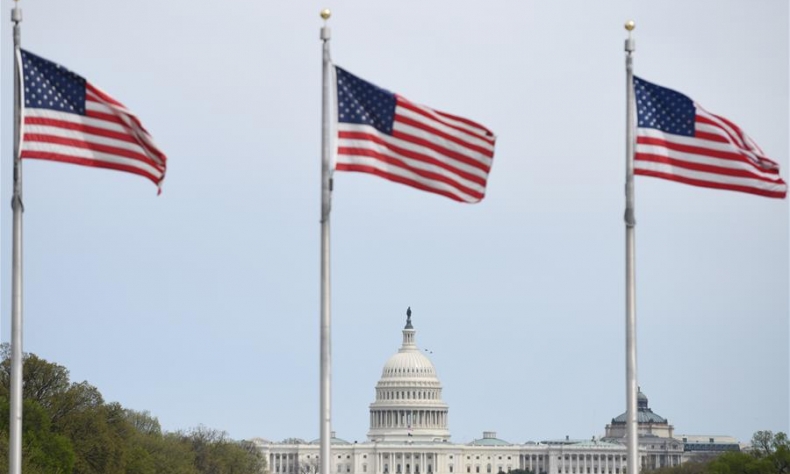Political Considerations Behind US Coronavirus Stimulus Package

An emergency bill involving spending of roughly $2 trillion was finally cleared after negotiations between the White House and Senate leaders in the early hours of March 25.
An emergency bill involving spending of roughly $2 trillion was finally cleared after negotiations between the White House and Senate leaders in the early hours of March 25.
This rescue package is massive enough to be important. Its scope is larger than both the bank bailout in 2008 and recovery act in 2009 combined. The “wartime level of investment” offers a positive signal to the financial markets, with an 11% recovery in stock prices on the New York Stock Exchange on Tuesday.
However, the final version of the bill is different from the initial Republican draft in many details, being the result of a shuttle negotiations with Democrats.
This emergency bill was expected to reach the White House by the end of March 23. However, members of both parties involved in the intricate negotiation process had to inch their way to the final compromise on March 25.
Senate majority leader Mitch McConnell called the negotiations “political games.” Two concerns of Democrats proved essential in concluding this game: one focused on workers and the other on health care.
The first concern aims at providing more labor protection. This helps the Democrats win the hearts of their core voters – blue-collar workers.
A $500 billion plan for big corporations was most controversial. Former vice president Joe Biden accused the Trump administration of putting the profits of big companies ahead of workers interests. Speaking on March 23, he said, “As of last night, President Trump and Mitch McConnell were offering a plan to let big corporations off the hook…They proposed a $500 billion slush fund for corporations with almost no conditions.” As a result of negotiation, an oversight board and an inspector general will keep a close eye on this $500 billion fund.
Another concession won by the Democrats is a four-month expanded unemployment benefit. In the initial plan, the period was to be only three months. The definition of jobless workers is also expanded to include self-employed and so called gig workers.
Democrats tried to steer more of the aid toward ordinary workers. These efforts were made out of political considerations. Traditionally, “swing voters” are typical moderates; however, this year, blue-collar workers have become the prime target for both parties. This group of voters chose Trump in 2016, but this year, Biden, unlike Democrat president candidate Hillary Clinton, is also attractive to this group.
According to the Pew Research Center, Americans are becoming more partisan and polarized than previously. There is growing distaste for the other party among their supporters, with Republican distaste for Democrats rising from 17% to 58% and Democrat distaste for Republican rising from 16% to 55%.
This trend suggests that there is less chance of consensus being reached between the two parties in Congress, or between their supporters, which is why moderates no longer form the majority of swing voters today.
The second concern is related to the healthcare, which is the top issue in the 2020 election. A free coronavirus treatment for all could help Biden satisfy many liberals and enhance his electability.
According to a Gallup poll published in January, healthcare is the top issue, with 35% of Americans citing candidates’ positions as extremely important. So, it was necessary for Democrats to adopt a clear position here.
The specifics of the emergency bill show that hospitals can get up to $130 billion; actually the original version proposed only $75 billion. Democrats made their efforts to push for more healthcare dollars, and Senate Democratic leader Chuck Schumer took credit in a conference call on Tuesday to gaining a larger share in the bill.
Joe Biden also called for a free coronavirus treatment for all. The bill negotiation as well as the coronavirus itself provides opportunities for Biden and other Democratic centrists to make their overtures to the left. This gesture could help Biden rally the progressive left to beat Trump.
Chen Zhan is research assistant with Institute of World Economics and Politics, Chinese Academy of Social Sciences.
Opinion articles reflect the views of their authors, not necessarily those of China Focus
 Facebook
Facebook
 Twitter
Twitter
 Linkedin
Linkedin
 Google +
Google +










